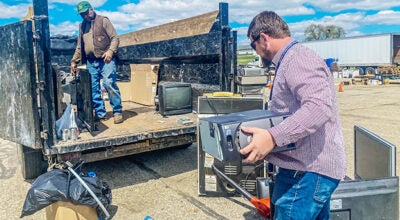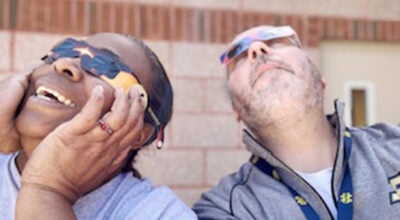State grants awarded to Cass County problem solving, treatment courts
Published 8:30 am Wednesday, October 16, 2019
CASSOPOLIS — Cass County Chief Judge Susan L. Dobrich recently announced that the Cass County problem solving and treatment courts received $459,485 in the following grant awards from the State Court Administrative Office for the grant period of Oct. 1 through Sept. 30, 2020:
• $78,000 for the Family Treatment Court (Michigan Drug Court Grant Program grant) operated by Cass County’s Probate/Family Court
• $175,000 for the Swift and Sure Sanctions Probation Program operated by Cass County’s 43rd Circuit Court.
• $120,000 for the Hybrid DWI/Drug Court (Edward Byrne Memorial Justice Assistance Grant) operated by Cass County’s 4th District Court.
• $86,485 for the newly created Cass County Mental Health Court operated by Cass County’s 43rd Circuit Court.
Problem solving and treatment courts are judicial programs that utilize a therapeutic jurisprudence model. These courts treat the underlying source contributing to court involvement. Participants are held accountable through intensive supervision, frequent judicial status review hearings, random and frequent drug testing, and a variety of incentives and sanctions. A holistic and team approach is taken that includes judges, prosecutors, program coordinators, probation officers, case managers, law enforcement, defense counsel, and treatment providers.
“The state’s continued funding of our programs in Cass County recognizes the successes we have achieved: stronger and safer communities, more productive and engaged citizens, and children being raised in healthier families,” said Dobrich, who created Cass County’s Family Treatment Court and oversees all of Cass County’s Problem Solving and Treatment Courts.
Problem solving courts treat addiction as a complex disease and provide a comprehensive, sustained continuum of therapeutic interventions, treatment and other services to increase a participant’s periods of abstinence, hold participant’s accountable, reduce the rate of relapse and future court involvement, and keep communities safer, Dobrich said.
“Michigan has been a leader in the problem solving court movement, which has sought to provide justice alternatives to address the revolving-door cycle in which persons with drug and alcohol addictions moved in and out of our court systems,” she said.
Treatment is effective and people can and do recover if they are willing to work in partnership with the justice system and their treatment providers, according to those involved with the courts.
“Make no mistake. Drug and sobriety courts, mental health courts and veterans treatment courts are not easy and certainly not a free pass. These programs are tough and participants undergo strict supervision, frequent testing, and much-needed treatment. Not everyone graduates and some would rather sit in jail than do the work necessary for a healthy and complete recovery,” said Michigan Supreme Court Justice Elizabeth T. Clement.






